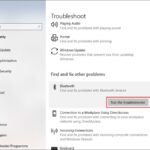Loss of appetite is a common experience, occurring occasionally for various reasons. However, persistent lack of hunger can signal underlying health issues. This article explores the potential causes of appetite loss and offers guidance on when to seek medical advice.
:max_bytes(150000):strip_icc()/refrigerator-GettyImages-1460831041-754245d0480940899c37771e88a45b39.jpg)
Common Causes of Appetite Loss
Numerous factors can contribute to a decreased desire to eat. Understanding these causes can help determine whether your lack of appetite is temporary or requires medical attention.
Aging and Appetite
As we age, it’s common to experience a gradual decline in appetite. Physiological changes associated with aging, such as altered taste perception (dysgeusia) and difficulties with chewing or swallowing, can make eating less appealing. Additionally, age-related conditions like dementia can further suppress hunger.
Stress, Anxiety, and Reduced Hunger
Stress significantly impacts appetite. While acute stress triggers a hormonal response that temporarily suppresses hunger, chronic stress can lead to increased appetite and overeating. Understanding the interplay between stress and appetite is crucial for managing both physical and mental well-being.
Infections and Loss of Appetite
Illnesses, whether viral or bacterial, often diminish appetite. Symptoms like nausea, vomiting, and loss of smell associated with infections contribute to this reduced desire for food.
Medication Side Effects
Many medications list decreased appetite as a potential side effect. These include antibiotics, chemotherapy drugs, opioids like codeine and morphine, and sedatives. If you suspect your medication is affecting your appetite, consult your doctor.
Depression and Appetite Changes
While often linked to increased appetite, depression can also lead to significant appetite loss and unintended weight loss. Changes in brain chemistry affecting hunger regulation may contribute to this symptom in individuals with major depressive disorder.
Digestive Issues and Appetite
Gastrointestinal problems frequently cause decreased appetite. Symptoms like nausea, gas, cramping, and stomach pain associated with eating can make food unappealing. Conditions affecting the brain-gut connection can also play a role.
:max_bytes(150000):strip_icc()/refrigerator-GettyImages-1460831041-754245d0480940899c37771e88a45b39.jpg)
Pregnancy and Appetite Fluctuations
Hormonal changes and morning sickness during the first trimester of pregnancy commonly cause nausea, vomiting, and reduced appetite. These symptoms can persist throughout pregnancy, impacting a woman’s nutritional intake.
Addison’s Disease and Appetite
Addison’s disease, characterized by insufficient hormone production by the adrenal glands, often presents with loss of appetite as an early symptom. Gastrointestinal issues like nausea and stomach pain may also contribute to reduced hunger.
Hypothyroidism and Appetite
Hypothyroidism, or underactive thyroid, can lead to a diminished sense of taste and smell, consequently decreasing appetite. This effect is typically observed in the later stages of the condition.
Chronic Liver or Kidney Disease and Appetite
Chronic liver or kidney diseases, such as kidney failure, hepatitis, cirrhosis, and liver failure, are often associated with decreased appetite, weight loss, and malnutrition. The decline in appetite often progresses as the disease worsens.
Cancer and Appetite Loss
Certain cancers can suppress appetite, resulting in weight loss and fatigue. While cancer is a less common cause of appetite loss, it’s essential to consult a healthcare provider if you experience persistent lack of hunger alongside other concerning symptoms.
When to Seek Medical Help
Consult a healthcare provider if your loss of appetite persists for several days or is accompanied by unintended weight loss exceeding 10 pounds. Seek medical attention if you experience additional symptoms like depression, substance abuse, eating disorder symptoms, or other concerning signs. These could indicate an underlying condition requiring diagnosis and treatment.
Regaining Your Appetite
While addressing the underlying cause is crucial, several strategies can help stimulate appetite: maintaining a food diary, experimenting with different flavors and textures, savoring favorite foods, creating a pleasant eating environment, consuming smaller, more frequent meals, and focusing on nutrient-rich foods. If necessary, your healthcare provider may recommend medication to stimulate appetite. Remember, prioritizing nutrition is essential even when you don’t feel hungry.

